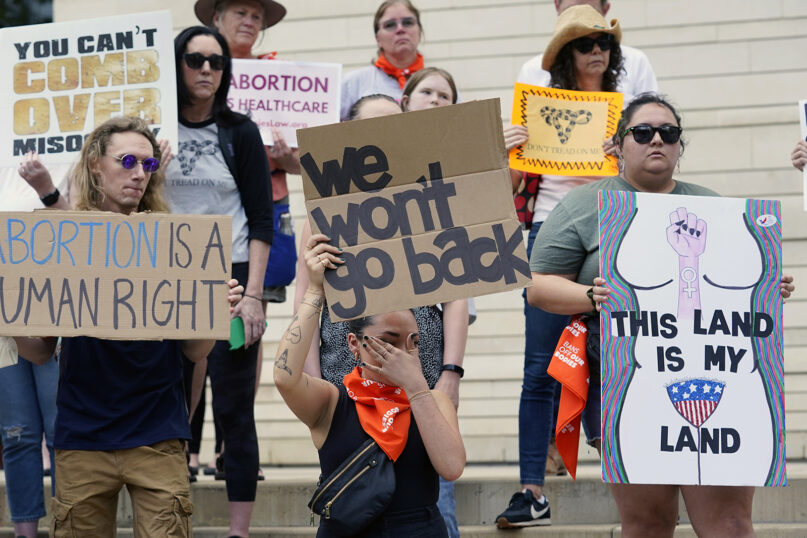(RNS) — When the Rev. Kira Austin-Young, an Episcopal priest in Nashville, Tennessee, heard that the Supreme Court may overturn Roe v. Wade, she began thinking about her congregation. She also began doing the math, figuring the time it takes to drive to southern Illinois, where abortion will likely remain legal if Roe falls.
“As the pastor of a community, that is what I am thinking about — if someone in my congregation is in need of an abortion, how do I help them?” said Austin-Young, priest-in-charge at St. Ann’s Episcopal Church.
For clergy who support abortion rights in states like Tennessee, which has already passed a so-called trigger law that would make having an abortion a felony if Roe is overturned, the leak of Justice Samuel Alito’s draft Supreme Court majority opinion is already putting their religious convictions at test. While they want to respect state law, they also believe their faith requires them to support access to abortion.
“If 1 in 4 women have had an abortion, then people who have had abortions are in the pews on Sunday mornings,” she said. “How do we as pro-choice clergy make sure people in need are getting safe ones and not being taken advantage of?”
In Texas, where a restrictive abortion measure known as SB8 has been in force since September, Rabbi Kelly Levy said she has already been helping women traveling out of state for abortions after six weeks of pregnancy, the limit imposed by SB8, which comes before most people know they are pregnant.
“For thousands of years, Jews have supported medical access to abortion for any individual who finds themselves pregnant,” said Levy, an associate rabbi at Congregation Beth Israel in Austin. “It is something our ancient text requires. To take away this lifesaving medical procedure away from individuals is going against my religious freedom.”
Five years ago, the Rev. Daniel Kanter, senior minister of First Unitarian Church of Dallas, founded a multifaith chaplaincy group that serves the Southwestern Women’s Surgery Center, a Dallas abortion clinic. Since SB8 passed, the group’s members commonly accompany pregnant people to get abortions in neighboring New Mexico. Texas’ trigger law, according to The Texas Tribune, would make performing abortion a felony and force the Dallas clinic to close. ”They’re going to have to find us through other channels,” Kanter said.
But Kanter said the clergy will continue to help people get safe and legal abortions in New Mexico. “Nothing about this law makes it illegal to help someone get an abortion in another state,” he said.
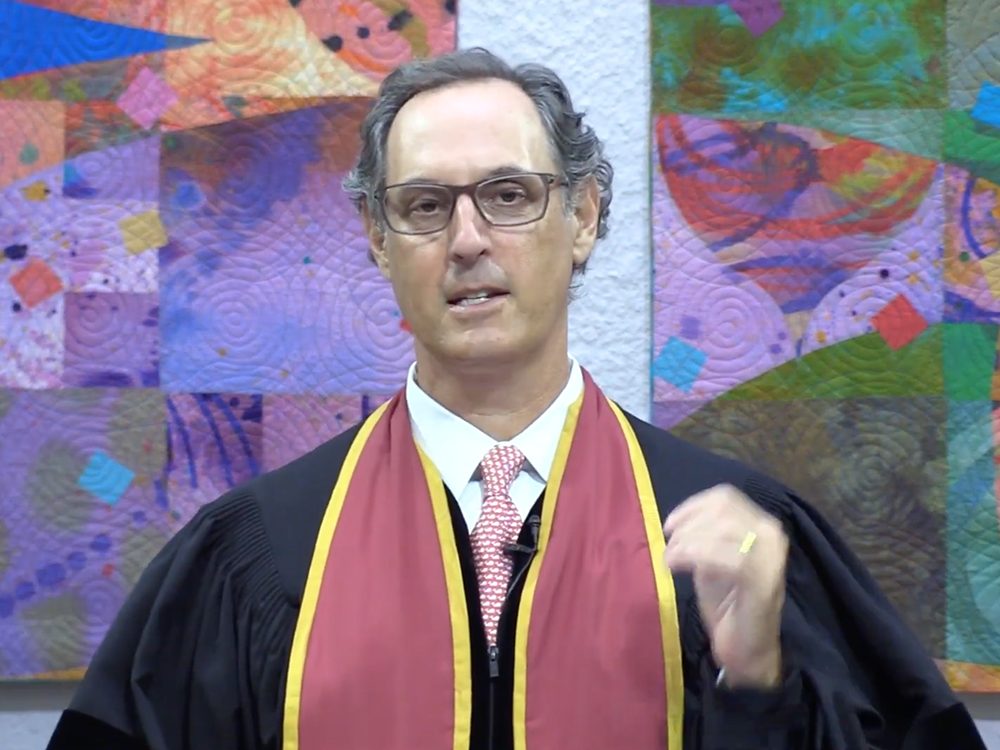
The Rev. Daniel Kanter delivers a sermon on July 4, 2021. Video screen grab
First Unitarian of Dallas has a long history of making abortion rights a priority. The church’s Women’s Alliance was an early supporter of Roe v. Wade, which originated in the Texas court system. Cecile Richards, later president of the Planned Parenthood Federation of America, was raised in the church, Kanter said.
“My faith as a Unitarian Universalist says that every person has dignity and worth, and that no one should be condemned for their actions or relegated to not being able to make decisions about their bodily autonomy,” said Kanter, who provides pastoral care and private counseling to women as they make decisions about abortions.
RELATED: In Texas, ‘Reproductive Freedom Congregations’ catch on as new abortion law looms
If Roe is indeed overturned, Kanter envisions an emerging “progressive movement of reproductive dignity,” which includes religious people.
“We saw the rise of this issue in evangelicalism with the goal of gaining political power, and we’re going to see the rise of progressive faith communities around this issue,” Kanter said. “Not with the goal of political power, per se, but with the goal of helping real people and real lives.”
The Rev. Amelia Fulbright, pastor at the Congregational Church of Austin, has provided chaplaincy support for women grappling with whether to continue with their pregnancies. She said she fears the legal consequences of doing so may be greater if Roe is overturned.
As a faith leader Fulbright said her “role is always to help the person get clear about what the options are, and then to listen to their own moral conscience.”
“That to me is like my moral ethical imperative to do that, regardless of what the law is,” Fulbright said.
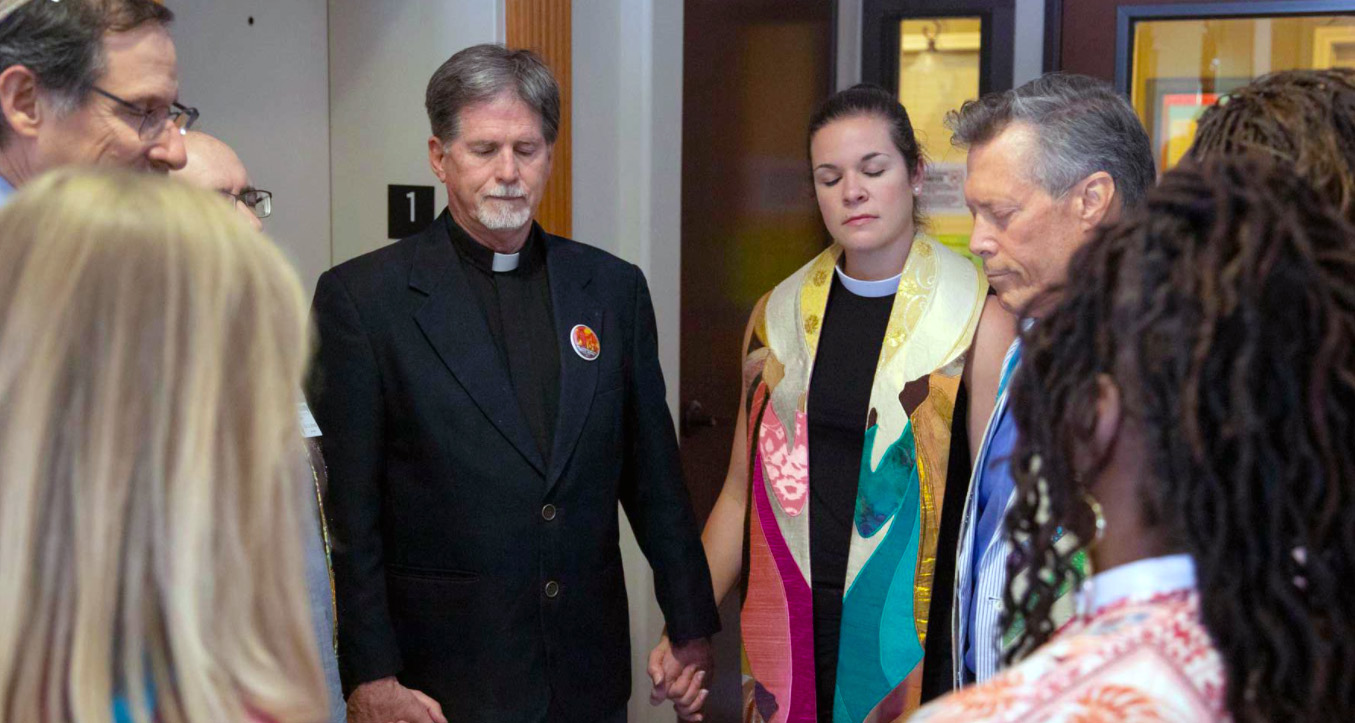
Clergy members hold hands during the blessing of a Whole Woman’s Health clinic in Austin, Texas. Photo courtesy of Just Texas
If Roe is overturned, said the Rev. Katey Zeh, CEO of the Religious Coalition for Reproductive Choice, it may lead to a reboot of groups such as the Clergy Consultation Service, begun by Christian and Jewish clergy in the late 1960s to help women find safe abortions. The network was made up of pastors in 38 states, said Zeh, and helped as many as half a million women.
Those clergy often had the support of their churches and denominations. “It was seen as a public heath good — as people were dying of unsafe abortions at the time,” she said. “And there was a lot of support for legal abortion.”
But today proposed restrictions to abortion could punish abortion providers, those who have abortions and — in Texas and other states where “copycat” legislation similar to SB8 is being considered — even someone who accompanies a person to an abortion appointment.
Last month, a 26-year-old Texas woman was arrested and charged with “the death of an individual by self-induced abortion.” Those charges were later dropped after public outcry.
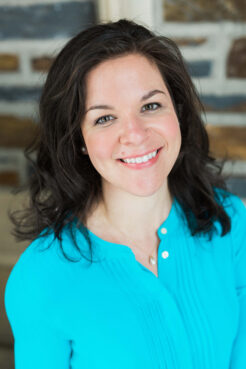
The Rev. Katey Zeh. Courtesy photo
“It’s almost like the loss of any pregnancy becomes suspicious now, and I think that that’s a real problem,” said Zeh.
Zeh would like to see pastors who support abortion rights push for the passage of what’s known as the Women’s Health Protection Act, a proposed federal measure that would protect abortion rights. She also believes those clergy should work harder to make a connection between faith and abortion rights and reduce what she called the stigma of abortion.
“Ultimately, this is about trusting people who are pregnant who need to make a reproductive decision, that they are allowed to express their moral conscience about what they should do with their own bodies, rather than legislating that on their behalf,” she said.
RELATED: Overturning Roe v. Wade inches us back toward the arc of justice
Carolyn Davis, a Washington, DC-based faith advocacy strategist working on reproductive health, said activists are also working with state legislators to protect access to abortion.
Most Americans — and many religious people — support keeping abortion legal, but few legislators seem to be aware of the fact, said Davis.
She pointed to data from the Public Religion Research Institute, showing that nearly two-thirds of Americans believe abortion should be legal. That includes 59% of Catholics, 70% of mainline Protestants, 59% of white Catholics, 57% of Hispanic Catholics and 80% of Americans from non-Christian religions. Only 30% of white evangelicals say abortion should be legal.
According to March 2022 PRRI data, 28% of Americans say abortion should be legal in all circumstances. Only 9% say abortion should be illegal in all circumstances, down from 15% in 2018.
Davis sees abortion in the context of growing financial inequality in the United States, where, she said, many pregnant women feel they do not have enough support or resources to support a child. “What does it mean to make sure everyone can be healthy and take care of their families in the way that they need to?”
On the other side of the debate, religious leaders have expressed cautious optimism that the draft opinion spells the end of Roe. But Brent Leatherwood, interim president of the Southern Baptist Convention’s Ethics and Religious Liberty Commission, said that even if Roe is overturned, there is still more work to be done.
Leatherwood said he would like to see a “right to life” enshrined in federal law, something he believes the U.S. Constitution would support. He also believes opponents of abortion will have to turn their attention to state legislatures, where the battle over abortion would be focused post-Roe. While Bible Belt states would likely ban abortion or significantly restrict it, other activists would push for more incremental change in states such as California and New York.
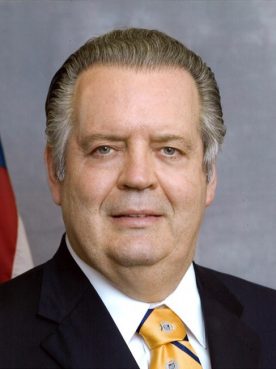
Richard Land in 2011. Photo courtesy of Creative Commons
Leatherwood also pointed to the larger issue of providing support for women who are pregnant and struggling. He believes that churches need to step up and help. “We need a model of support so that a mother can say, ‘I choose life,’” he said. “There’s a unique role that churches can play in this.”
Richard Land, a longtime evangelical ethicist and former head of the ERLC, said he was ecstatic to hear the news that Roe may be overturned.
“I have been working on this since 1973,” he said.
Land agrees that more work will be needed at the state level. He also said that both churches and the federal government should do more to support families — extending the child tax credit and offering increased deductions for dependents.
“The most important thing a citizen can do is create a stable family,” he said. “We should do everything we can as a society to do that.”
RELATED: With Roe teetering, religious activists on both sides flock to the Supreme Court
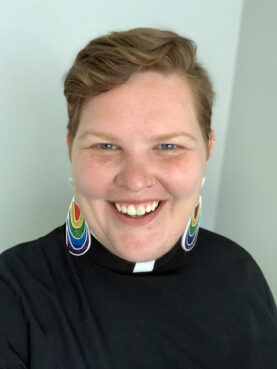
The Rev. Angela Williams. Courtesy photo
The Rev. Angela Williams, lead organizer for the Spiritual Alliance of Communities for Reproductive Dignity, or SACReD, believes religious organizations have a much more expansive role to play than supporting legislation. The Arkansas Presbyterian pastor said religious people have helped to create a stigma around “our sexualities and reproductive lives.” She sees it as her duty to “undo some of the harm that is done in the name of my religion,” and she wants others to take action as well.
SACReD recently launched a new training program that allows houses of worship to receive a designation from the group that shows the congregation affirms that “reproduction is a sacred responsibility, and prayerful decisions to have children, to not have children, or to end a pregnancy can be equally moral.”
Houses of faith would provide pastoral care, counseling those who have given birth or had an abortion and helping them with meals. Congregations would also commit to being politically involved in reproductive rights efforts.
Williams said SACReD has worked with clergy and others from more than 30 religious traditions and denominations in both blue and red states across the country in these practices. This includes many who are Unitarian Universalist, rabbis, Muslim leaders, Buddhist and Hindu people, as well as those who are Presbyterian, Methodist, Episcopalian and Catholic.
“It is the work of all communities, but in particular Christian communities, to tackle some of the harm that is done in the name of Christianity,” Williams said.
